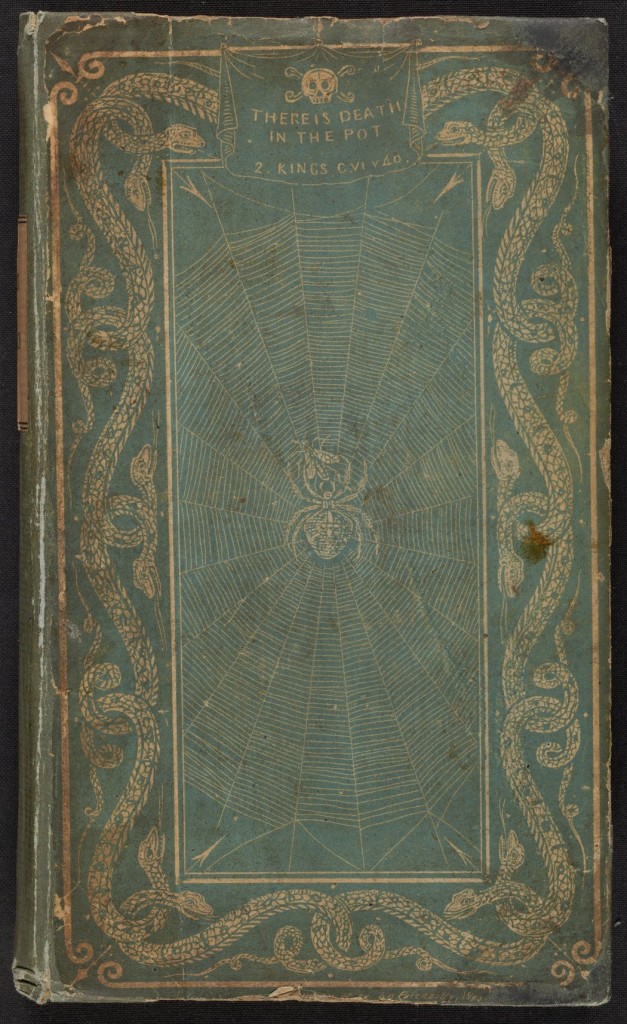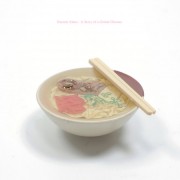 The 1820 book Death in the Pot: A Treatise on Adulterations of Food and Culinary Poisons, by the German-born and London-based chemist Friedrich Accum, was written to help consumers detect adulterated food sold as genuine. At the time, dangerous food practices that exposed people to economic frauds were widespread in the UK market, and profit-driven business owners who sold counterfeit food as genuine used additives that contained substances harmful to health. His methods could help detect whether the tea of a particular seller, for example, was genuine or just grass, which had been laid on sheets of copper to give it a golden hue and make it look like tea. They could also help detect a toxic, bleaching additive called alum, which was used to adulterate bread and make it appear whiter, allowing the baker to spend less on whiter flour, but charge more for it in the shop.
The 1820 book Death in the Pot: A Treatise on Adulterations of Food and Culinary Poisons, by the German-born and London-based chemist Friedrich Accum, was written to help consumers detect adulterated food sold as genuine. At the time, dangerous food practices that exposed people to economic frauds were widespread in the UK market, and profit-driven business owners who sold counterfeit food as genuine used additives that contained substances harmful to health. His methods could help detect whether the tea of a particular seller, for example, was genuine or just grass, which had been laid on sheets of copper to give it a golden hue and make it look like tea. They could also help detect a toxic, bleaching additive called alum, which was used to adulterate bread and make it appear whiter, allowing the baker to spend less on whiter flour, but charge more for it in the shop.
The album A Story of A Global Disease (2022) by Marseille-born and Brussels-based musician Naomie Klaus also relates to fake things that are made to look genuine. It is based on an idea about the Japanese Tower in Brussels and the Japanese Gardens that surround it. The Japanese Tower was constructed during 1901-1904 by orders of King Leopold II of Belgium, who had admired a similar tower, a Japanese pagoda, at an international world fair of commerce, the 1900 Universal Exhibition in Paris, and purchased it immediately. The King then asked the French architect Alexander Marcel to modify it and re-build it for him in the gardens of his Royal Palace in Brussels. When it was completed, he promised to transfer it to the nation after his death, so when he died in 1909, it passed to the Belgian state.
The album was recorded during the recent pandemic for the project ‘On the Go’ by a Brussels arts organisation. The project invited artists to share art with the public, while restrictions were still in place, by making music to accompany walks throughout Brussels. Klaus decided to write music for a walk in the park around the Japanese Tower. Today, the Japanese Tower is administered by a public organisation within the City of Brussels authority which uses it as a museum, the Museum of the Far East. Visitors can admire not just the architecture and the surrounding gardens, but also the building’s decorative elements, including furniture and stained-glass windows, and a collection of art objects relating to the Belgian-Japanese relations throughout the years of cultural and economic exchange between the two countries.
Klaus herself describes the album as a collection of songs about ‘the artificial paradises of globalisation’. Using a range of electronic equipment to filter voice, drum-kits, and trigger synths, she expands on the idea that copies of famous cultural artefacts – like the Japanese Tower – can be enjoyed as exotic spectacles outside of the country they were made, to talk about global communication, free trade, and the problems of a consumer society. Songs such as ‘Can I Be Your Gheisha?’, ‘Crocodile Skin Shoes’, ‘Tourism Workers’, and ‘Can You Tell Me What Is Micronet?’, question the idea that the world is a tightly-woven international community with strong cultural and economic links (through international exhibitions or festivals and inter-governmental trade agreements).

